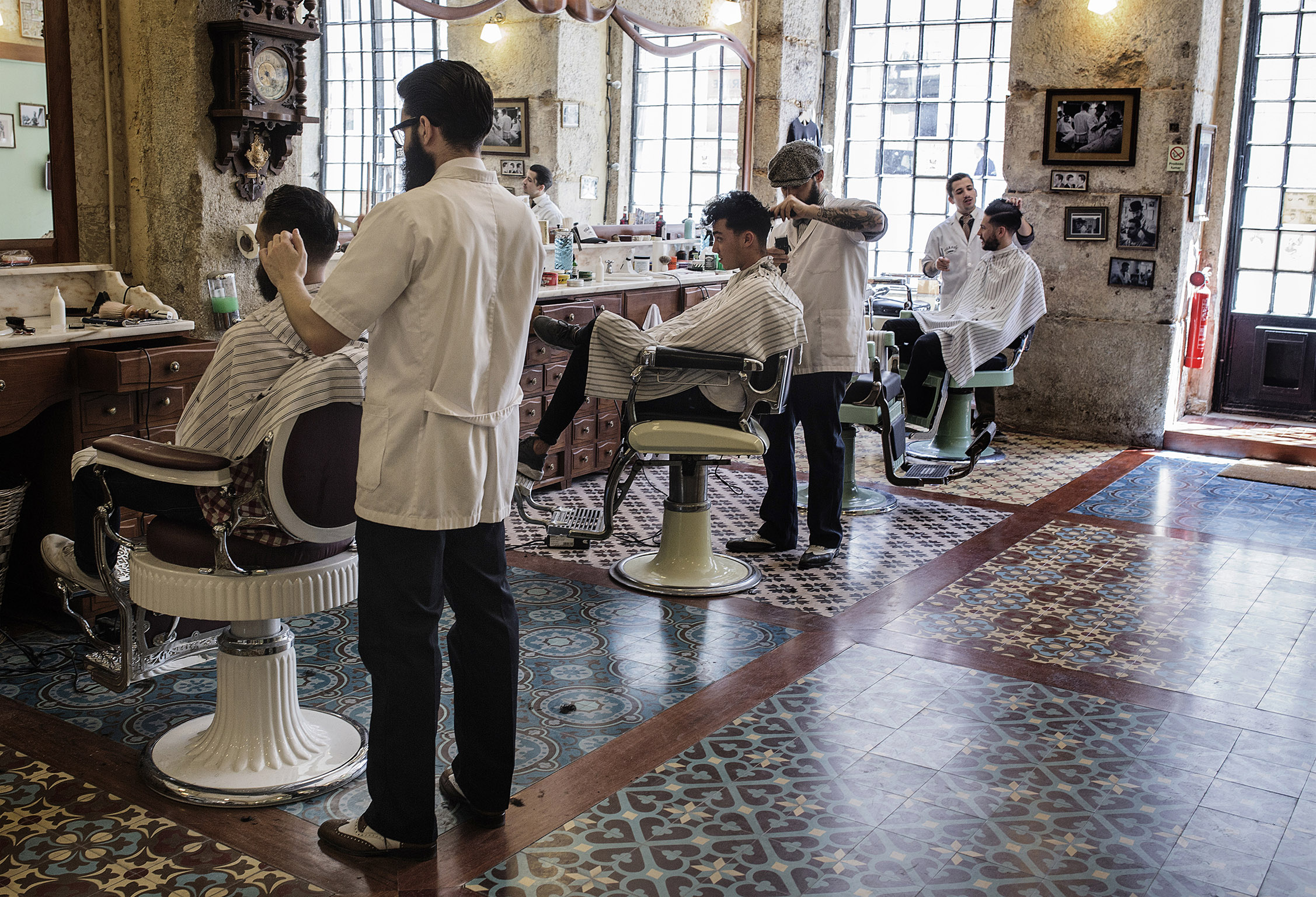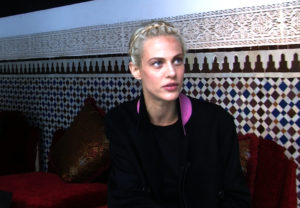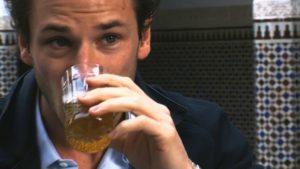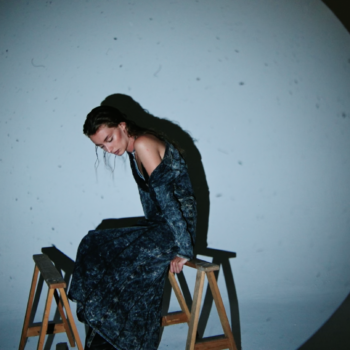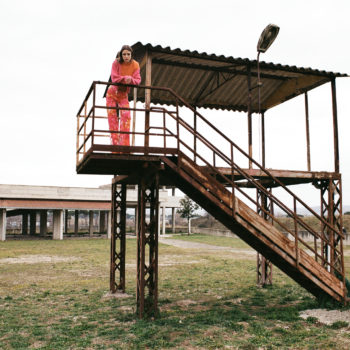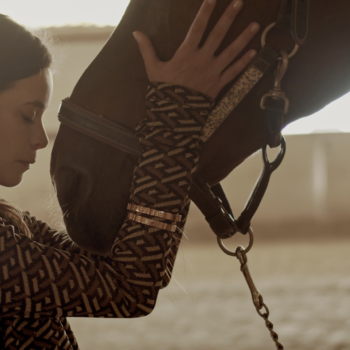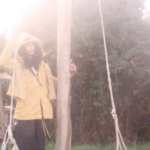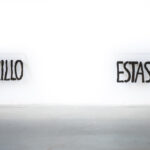by PABLO CALVI
Swarmed into the white room on a cloud of purple hijabs, beaming iPads and buzzing voices, Viggo Mortensen keeps a warm, mellow cool that passes at times for a civil tinge of skepticism. He carries a tote bag too white for his aubergine shirt, or too small against his blocky torso. He is fastened into a dark blue two-piece suit, thick enough for the dry Moroccan weather. Nothing feels ostentatious about him. Mortensen is the poster child for Hollywood normcore, or, as a director would later tell me, a perfect clean canvas of an actor. Only one dissonant note strikes out in his attire: a shabby red-blue woven bracelet dangling on his left wrist, the acronym CASLA embroidered in white. Everybody notices it but no one asks; I don’t need to.
At the 14th Marrakech Film Festival, Mortensen plays the part of the big American Hollywood actor, despite the fact that since his role as Prince Aragorn in Peter Jackson’s Lord of the Rings trilogy, he has shown a penchant for flavorful parts in low budget independent movies. And he is not all that American either. Yes, he was born in Manhattan, but he grew up in South America, just a few blocks away from my home, in the western part of Buenos Aires. Boedo, our childhood neighborhood, is generous with open skies, narrow streets, cafés, tango—and fútbol. Mortensen’s father, who had a farm in the northern province of Tucumán, made all his sons fans of Club Atlético San Lorenzo de Almagro (CASLA), the soccer club he loved, and its stadium, El Gasómetro, a few blocks away from their place in the far, far South.
This transient upbringing, Mortensen knows, has had an impact on most of his acting choices. There are formulas embraced by mainstream producers and directors, who need to recoup their investment in big budgets, but there is also the unexpected, and the new, movies that take a long time to produce and put together, but have a redeeming quality. And that has been Mortensen’s game.
“This is the type of character I haven’t done before,” he explains about Daru, the Algerian teacher of Spanish descent that he plays in Far From Men (David Oelhoffen, 2014). The film, a moving rendition of Albert Camus’ short story “The Guest,” paints the early days of Algeria’s war of decolonization in the blue and yellow tones of the desert and a scrim of mountain rain. “He speaks French and Arabic, he’s a man from Algeria … on a surface level, there were a lot of things I had to learn, to play this role.”
Mortensen was coached in Algerian Arabic, French and the Andalusian variance of Spanish spoken in Northern Africa, but the most alluring element of the project was, to him, the story—of people, not big ideas.
“There were a lot of movies about this period of history, about the war for independence in Algeria. But I think that all of them, good or bad, were ideological, they took a stance. And this one doesn’t do that. It’s about an unlikely friendship. ”
Far From Men (Loin des hommes in French) was shot in the Atlas mountains, near the town of Ouarzazate, on the border between Morocco and Algeria. And, like Mortensen himself, it hinges between several cultures, places, and times.
“I think people are complicated. Everybody in the world has their secret life, their secret fears, desires, dreams, regrets, hopes,” Mortensen delivers with the aplomb of a well-aged sommelier. “I think that every character you play has the chance to be equally as complex, it doesn’t matter if it’s a comedy or a movie like Far From Men.”
“Even a soccer player?” I ask him in the final minute of our conversation. I speak in Spanish, and he looks surprised. Wringing his hands, he answers back in Spanish, with a distinct Argentine accent.
“I’m a little old to play a soccer player, but I can still walk, so I can play,” he speaks in a grin.
“What San Lorenzo player would you want to be in a film?”
Now, before answering, he looks to his right, and then up, as if retrieving a thought from the thin air of memories.
“Pontoni,” he says. “That was an interesting time, after the Second World War. I would love to play him in a movie about San Lorenzo’s tour of Spain in 1946 and 1947. But I may be too old for that …”
The sudden shine in his eyes, though, says otherwise.

